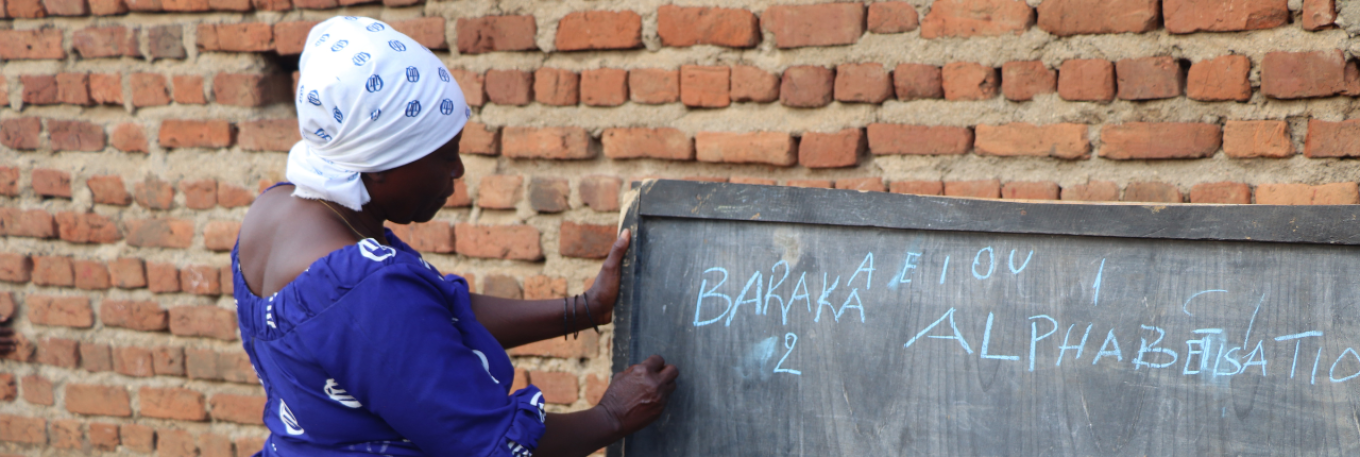You are here

Literacy for widows – how education is bringing change and hope
International Widows Day, marked on 23 June, is a day established by the United Nations dedicated to addressing the poverty and injustice faced by millions of widows and their dependents. Women in many countries experience great hardship after their husbands die, and are often shunned by society and not looked after by governments.
In countries such as the Democratic Republic of Congo and South Sudan many women have been widowed as a result of the ongoing wars and conflict in their countries. They often live in rural settings in the villages surrounding cities where war and conflict has continued for many years. When a spouse dies from conflict, the struggle for a widow does not stop at this loss. Traditions, customs and gender-based discriminatory beliefs lead to women being stigmatised in their own communities. This can include the loss of their home, their livelihood and their income, with their children suffering further through the subsequent loss of education. However, Mothers’ Union is working to challenge this stigma.
DRC’s Community Development Coordinator (CDC) Marthe Vira shares that MU is “raising women up and helping them to be able to move on with their lives” through the programmes within the country. Led by MU members, these programmes include vocational training in areas such as literacy and financial education, empowering women to be independent despite being widowed.
By learning to read and write in their local language, women can access many areas of life without a man leading the household – including managing money, running businesses, and supporting their children practically.
In the Juba diocese in South Sudan, Lois shares how the MU Literacy Programme has enlightened her as a widow, stating that she learnt a lot and felt changed as a result: “With all these teachings, I can talk and advise my children. With my small business, I can do more work and get more money. This programme has helped me become literate in many things. Before this programme, they (men) used to say women can’t do anything. But now we know our rights. Before, women weren’t considered when it came to inheritance, but now we are equal and have the same rights as men.”
Yomina is also a member in South Sudan, widowed with children. “Now I can talk to the children because I act as the mother and the father, there is great change. I am grateful for the programme and the teachings from the facilitator.’”
Being able to read and write transforms the way widows engage with their communities by opening up access to knowledge, communication and opportunity. It allows them to read and interpret information, make informed decisions, and express their thoughts in a clear way. Literacy empowers individuals to have a foundation for lifelong learning – participants in the learning programme often partake in subsequent projects such as savings groups and agricultural business programmes. Literacy is not just about reading and writing. It unlocks connection, growth and change, bringing hope and opportunity to those who need it the most.
Faith in action
Mothers’ Union is committed to continuing to work at grassroots level through our members to tackle issues such as poverty and injustice faced by widows. We do this through advocacy campaigns and projects such as the Literacy Programme, striving to support vulnerable women and girls around the corner and around the world.
Through our Summer of Hope appeal, we have a fantastic opportunity to build on years of impactful work transforming lives in countries like the DRC. We urgently want to reach more widows and women to enable them to participate economically and socially in the communities, even in the worst of circumstances.
This International Widows Day, let us come together to give the gift of hope for a brighter future to widows and women everywhere.
